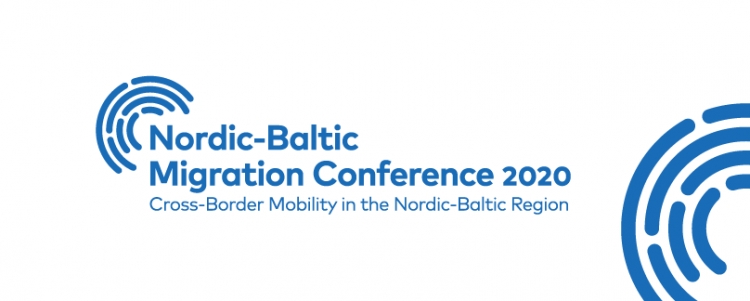Cross-border cooperation remains as important as ever

Next Nordic-Baltic migration conference in Estonia, this time titled ‘Cross-border movement in the Nordic-Baltic region’, will take place in KUMU on the 18th of September 2020.
Cross-border cooperation remains as one of the Nordic Council of Ministers’ highest priorities. Secretary General Paula Lehtomäki wrote in an opinion piece (21 May edition) in Sydsvenskan newspaper that border regions and people who were accustomed to working in other countries have been hit particularly hard by the coronavirus crisis. It has forced tens of thousands of people working abroad in the Nordic countries to stay at home because of the restrictions on movement that have been put in place. This has negatively impacted people, border regions and transport companies alike – all the more so since the free movement of people has been one of the underlying principles of cooperation between the Nordic countries for decades.
Northern Europe is one of the world’s most integrated regions. The unimpeded, large-scale movement of people across borders has been a significant driver for development in the region and has been guaranteed for residents since the 1950s. The coronavirus crisis has underscored just how important this principle is, and that perhaps we have come to take it for granted. Although many countries around the world (including the majority of the Nordic countries and Baltic States) closed their borders to impede the spread of the virus, it is now important that we restore the way of life as we know it for people, companies and countries in the form of safe border crossings.
Politicians in the Nordic countries are working hard to return us to the situation we are used to and are keeping even closer contact than before the crisis started. Every country chose its own path in response to the crisis, but decades of cooperation between the Nordic countries and the Baltic States have produced a sturdy basis from which to move forward as the crisis abates. A good example is the committee convened for the removal of barriers in crossing Nordic borders, which has been working throughout the crisis to find ways to restore cross-border movement.
The coronavirus crisis has even more clearly demonstrated the need to address practical issues affecting the free movement of goods and people through cross-border cooperation. For example, an answer needs to be found to the question of how the countries’ social insurance systems can support cross-border commuters at a time when people are temporarily being forced to remain at or work from home. Other questions are how the payment of benefits from unemployment insurance funds works in a crisis situation and how we can support cross-border entrepreneurship during a crisis, such as in the Öresund region. Similar issues are affecting the Valga-Valka border region and the Tornio-Haparanda cooperation zone.
Now that borders are gradually re-opening, we can say on the basis of these discussions, experiences and solutions that Nordic cooperation has been given a boost by what we have gone through during the crisis. As such, now is the right time to be discussing issues related to people’s mobility – which is what we will be doing at the eighth Nordic-Baltic migration conference, titled ‘Cross-border movement in the Nordic-Baltic region’. The conference is being organised by the Office of the Nordic Council of Ministers in Estonia in cooperation with the University of Tartu, the Estonian Ministry of the Interior and many other partners.
Read more on possible problems that cross-border commuters face: COVID-19 may cause tax problems for cross-border commuters


